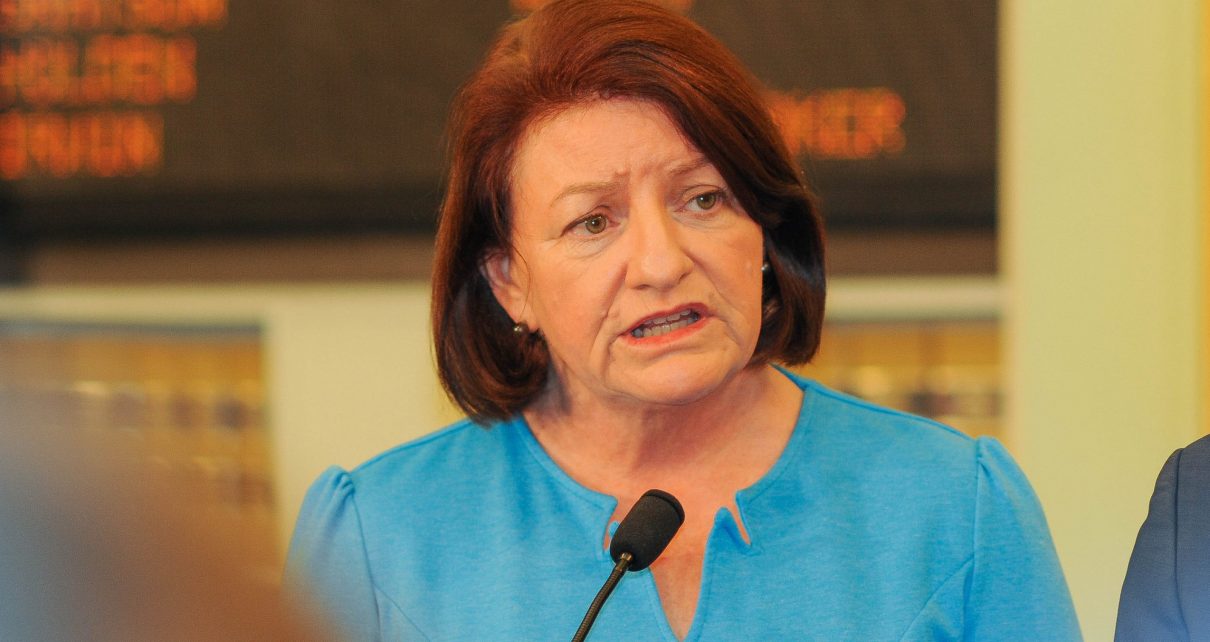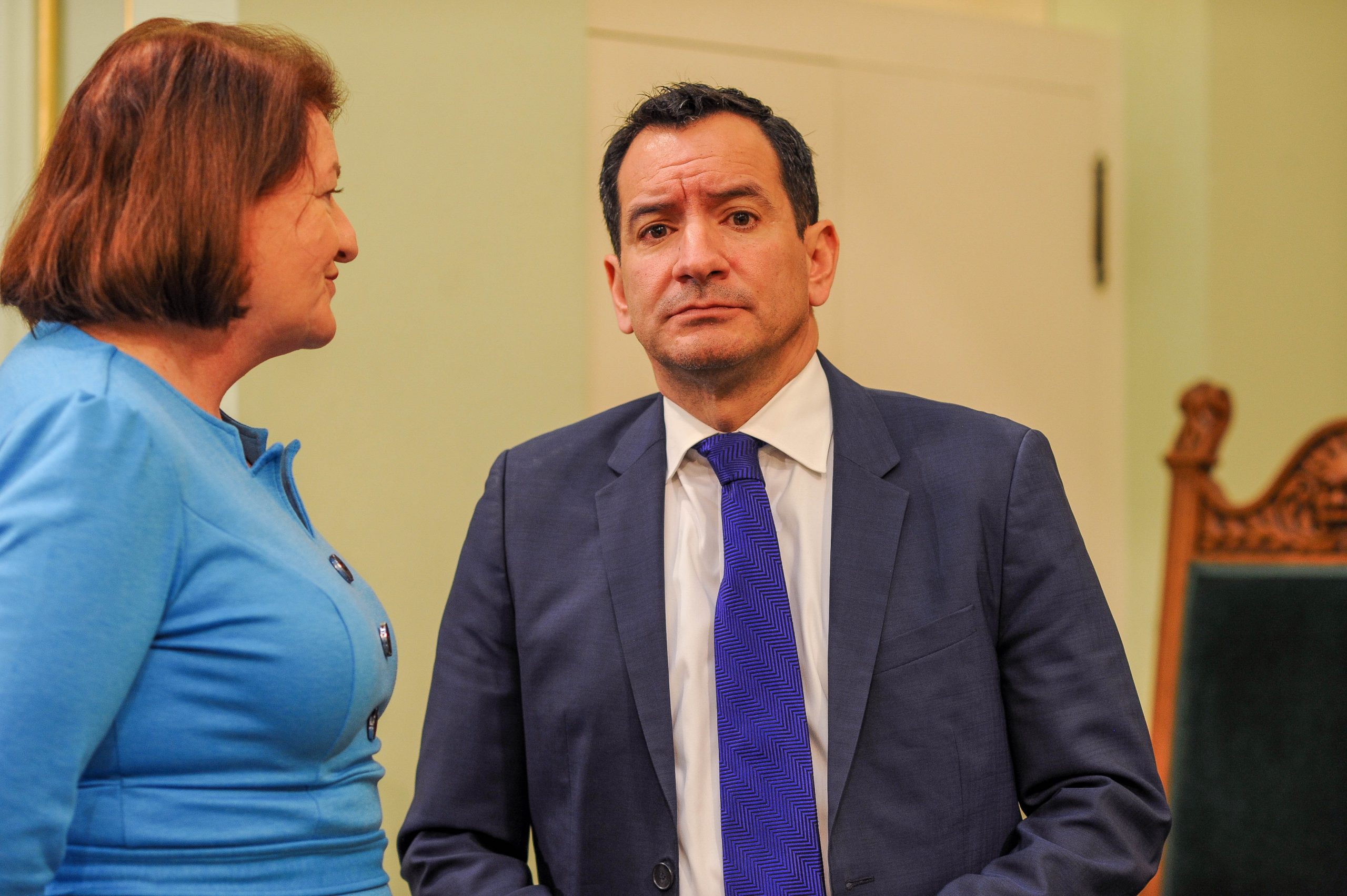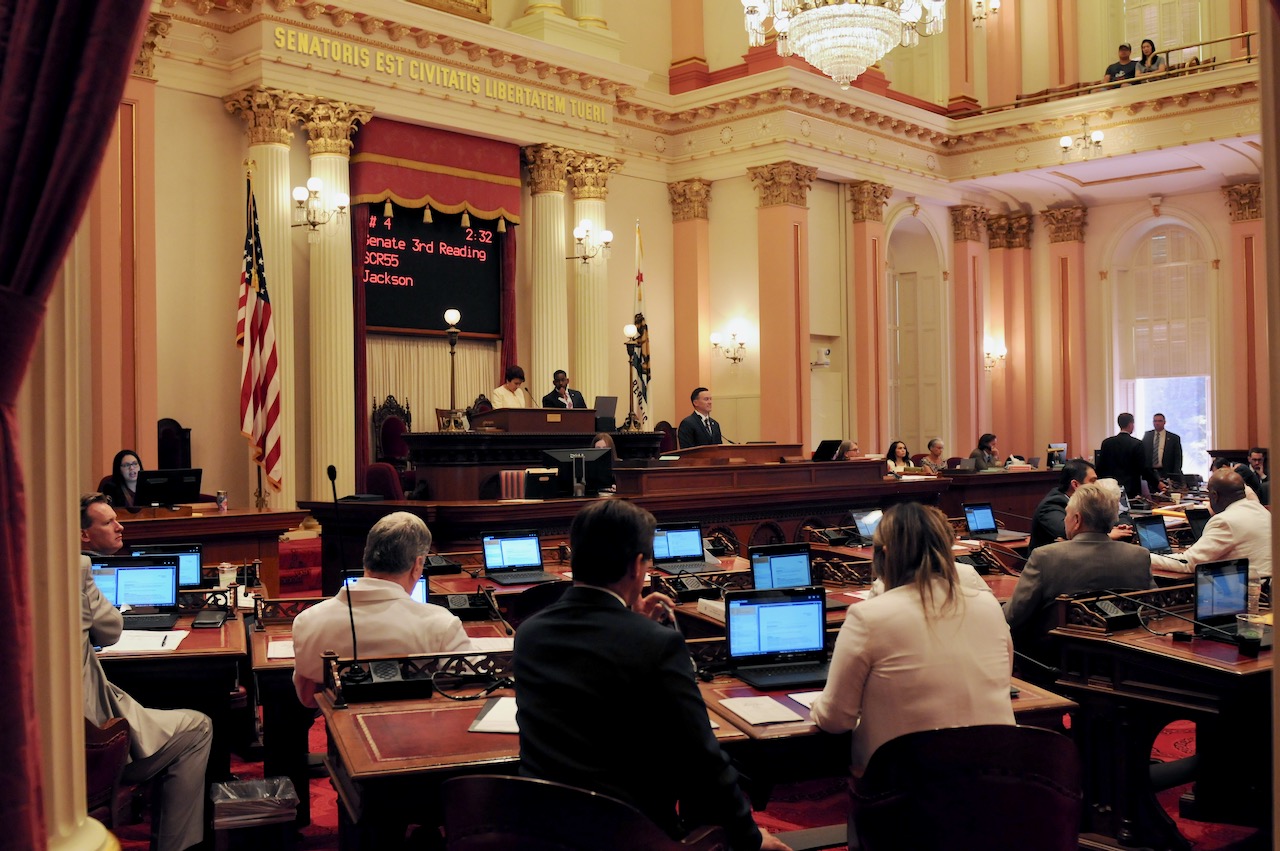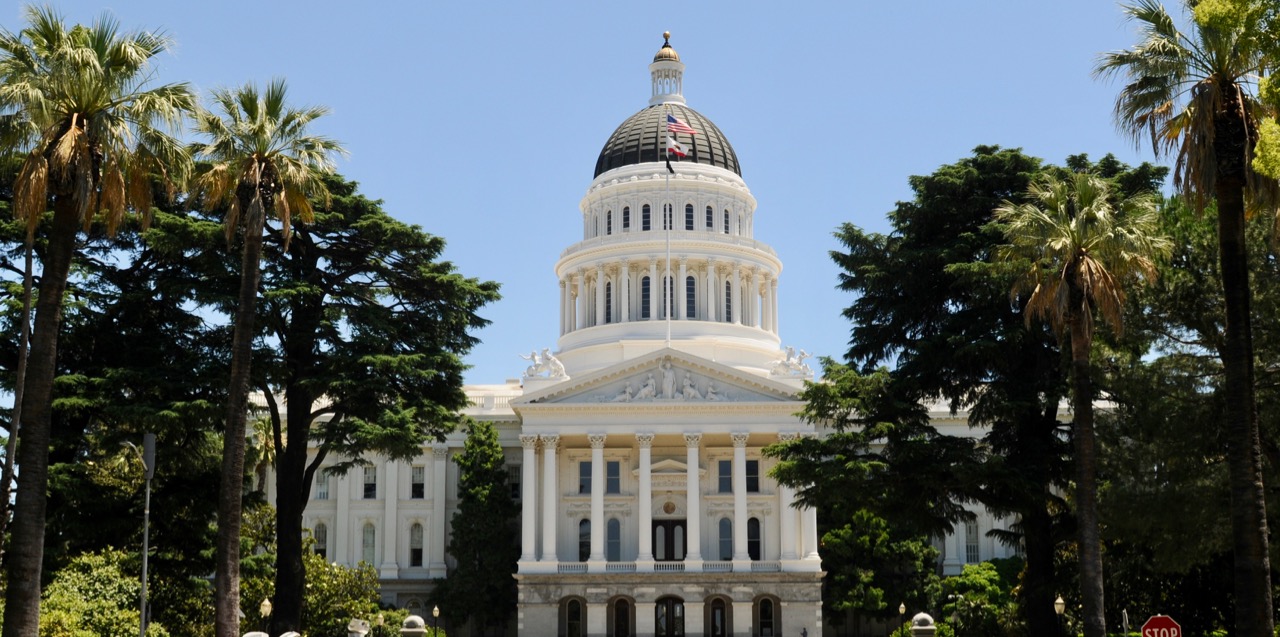
Sen. Pres. pro Tem Toni G. Atkins. (Photo: Kevin Sanders for California Globe)
California Senate Reconvenes After Almost Two Months
Senators can still attend remotely but must vote in person for bills
By Evan Symon, May 11, 2020 2:17 pm
On Monday, the state Senate reopened in Sacramento, bringing together the full legislature under one roof for the first time since mid-March.
Senators can still choose to attend remotely if they so wish through the SR 86 resolution. SR 86 has gone through much criticism for its legally questionable passage, but Senators can take advantage of it for the time being.
However, while Senators can continue to use Zoom to attend meetings, they must appear physically in person to vote. A bill in the Assembly is trying to make remote voting on bills possible, but as of yet it has not left committee.
Measures against the coronavirus pandemic that were introduced last week when the Assembly reconvened will still be in place for returning Senators.
Masks and microphone protective coverings remain mandatory inside the Capitol Building, as well as people having to have their temperature taken by a nurse before going inside. Those that have a high temperature will not be allowed inside. Coronavirus testing will also continue to be advisable for returning lawmakers, who will still have limited staff returning with them.
“As science and data have made clear, reopening California has to be done in a thoughtful, step-by-step manner, and that has guided our decisions on when and how the Senate returns to the Capitol,” stated Senate President Toni Atkins (D-San Diego) last week. “It is true that things will be different. They have to be. Legislation will be different, the budget will be different, and the process will be different.”
Like the Assembly, the Senate will most focus on getting emergency or coronavirus related bills passed due to a now shorter timeframe, a state budget needing approval following the announcement of a huge $54 billion deficit, and committees only being able to have a limited number of hearings.
For example some bills, such as SB 899 by Senator Scott Wiener (D-San Francisco), which would allow more affordable housing developments on hospital or religious organization-owned land, would be allowed because of housing crisis now being compounded by the effects coronavirus. Other housing bills, as well as those affecting the homeless and medical standards, will most likely also be green lit for consideration for similar reasons.
Due to remote attendance and some voting still being allowed for Senators, many have chosen to take advantage of that until a vote requires them to come to Sacramento.
“It’s a mix of being cautious and getting used to doing it by Zoom during the past several weeks,” noted “Dana,” who works in the State Capitol. “They’ve been getting some things done over Zoom. Last week everyone made a big deal of the Assembly coming back because Assembly members have to be there in-person by law. The Senate doesn’t have that. If anything, I’d call today a ‘soft re-opening’ for the Senate.”
“Now when Senators have to be here, then I’d say it’s going to be a lot more like how it used to be.”
Most Senators are expected to come to Sacramento for at least a few days in the following weeks due to major votes and budget matters that would require their in-person attendance.
- Plastic Ban Bill Passes Senate Committee - April 19, 2024
- ‘Fix Prop 47’ Initiative Receives Over 900,000 Signatures – Qualifies for November Ballot - April 18, 2024
- Google Fires 28 for Anti-Israel Sit-in at Work - April 18, 2024




